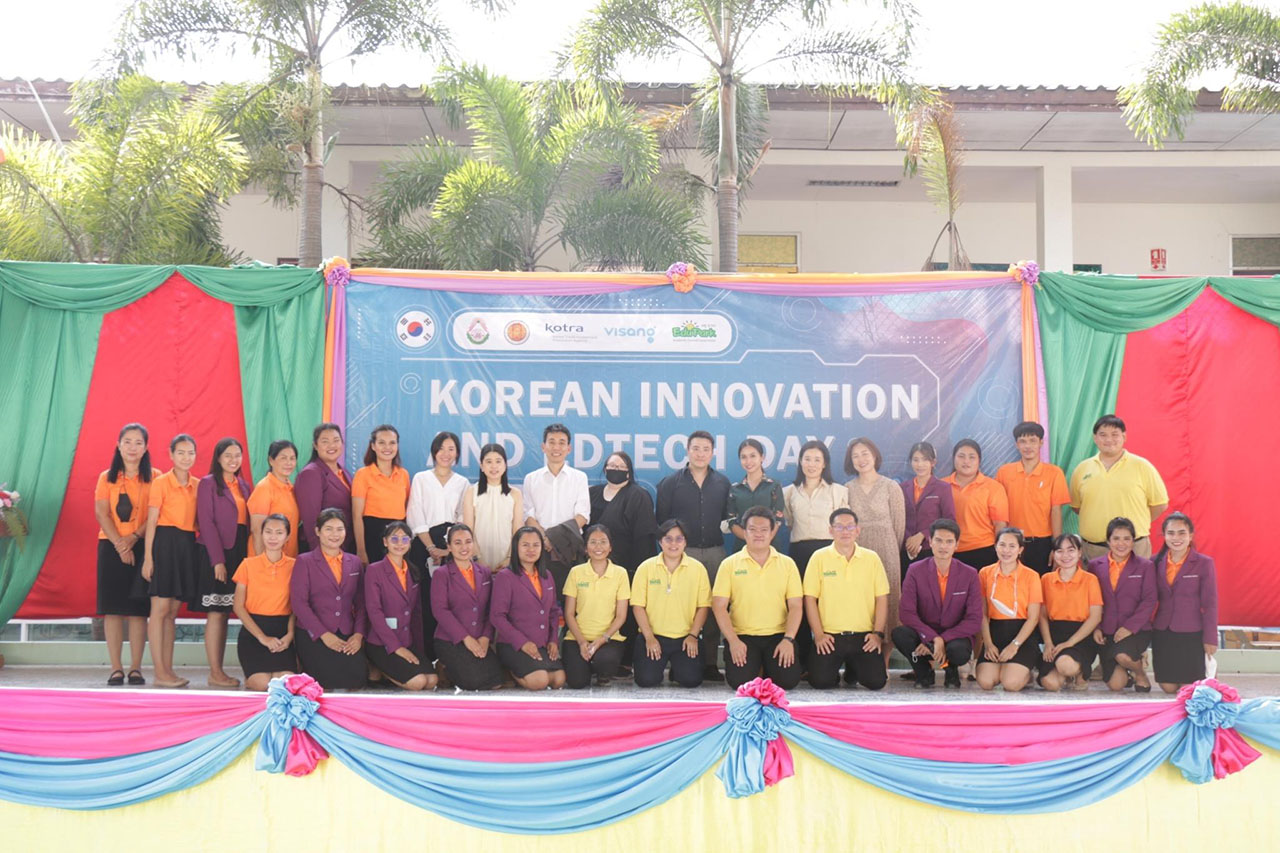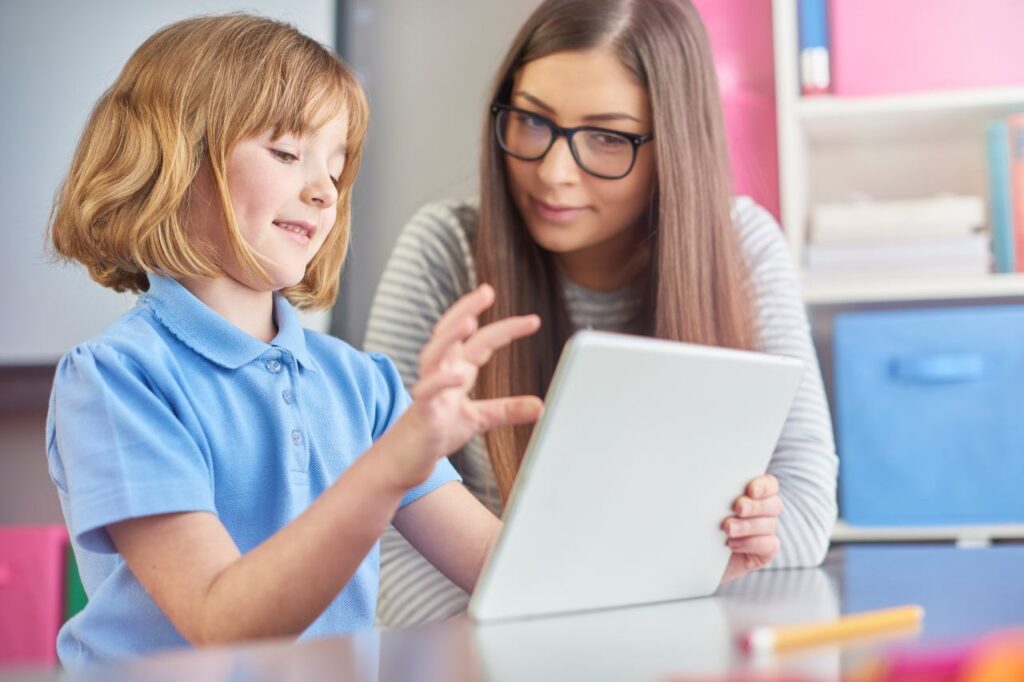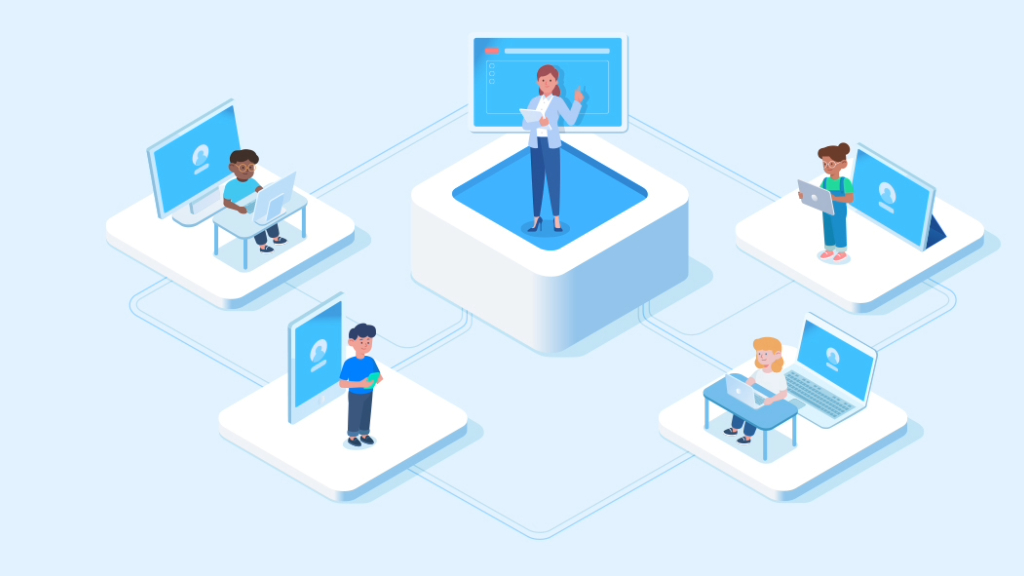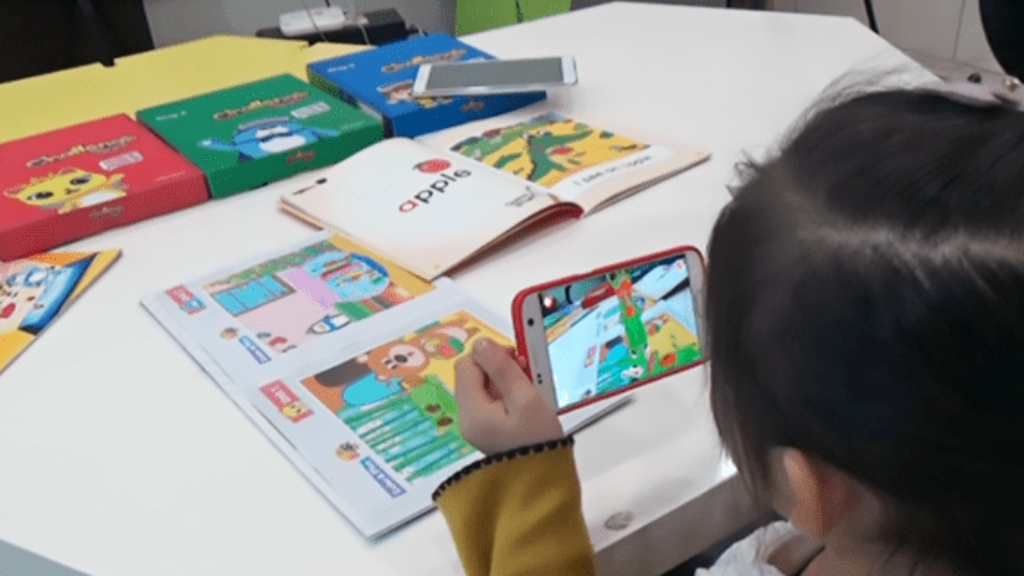EdTech, or educational technology, aims to introduce information and communication technology into the classroom to create more engaging and personalized learning experiences. In other words, EdTech is about looking at the traditional classroom format and finding ways to improve it using digital technology. VISANG EDUCATION has over 25 years of experience in the quality education education sector and has worked hard to revolutionize teaching and learning with its EdTech solution “AllviA.” AllviA is a smart learning solution focused on personalized learning pathways. The solution adapts to each student’s individual needs, preferences, and learning styles. AllviA can transform any course materials into fun and easy-to-learn digital education.
Today, we’re catching up with Miss Jayme Brown from VISANG EDUCATION, to talk about her role in the company, why she recommends Allvia, the challenges faced as an EdTech provider, and how Allvia will expand globally.
Thank you so much for your time. Could you please tell us more about yourself?
Hello, my name is Jayme Brown, and I am originally from Canada. I have been working in Korea for over 20 years now. I came here in 2002 and have been working in the education field ever since.
What is your role in VISANG EDUCATION?
I have been with VISANG EDUCATION for almost two years. I currently work in Business Development, where I focus on growing relationships, new business prospects, and forging strategic alliances. This job involves working with many international organizations, schools, and key education stakeholders to develop business for VISANG EDUCATION.
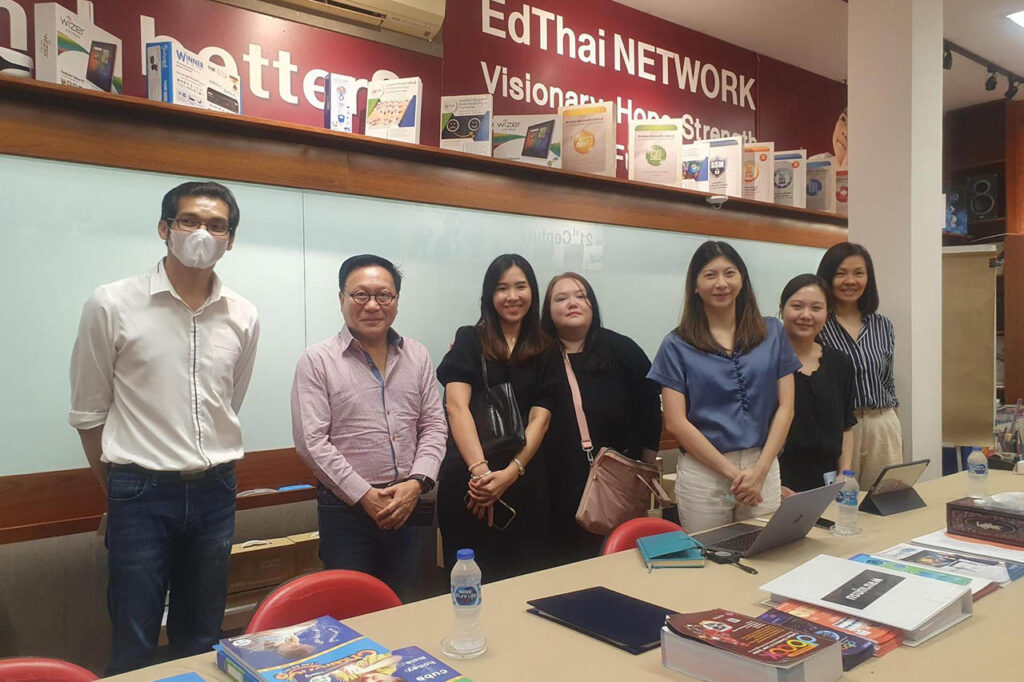
What is your ideal business partner?
Since we work in education, especially digital education for English and mathematics, our ideal partners are usually B2B organizations. These can be companies that operate in the education sector, such as educational institutions or institutes. We also work with B2G organizations such as government schools or the Ministry of Education. We also work with publishers. Basically, we want to work with well-organized, professional educational institutions that want to improve student learning outcomes and teacher productivity.
How do you build business relationships with your partners?
As part of the business development team at VISANG EDUCATION, we frequently participate in various international events. We also collaborate with government organizations such as KOTRA and NIPA. By attending these events, we meet potential customers with whom we hold meetings where we showcase our products. From there, we work to build relationships and networks and stay in touch to see if there are opportunities for collaboration. At the moment, we are working on specific projects in Thailand, Vietnam, and Indonesia. Southeast Asia is one of our largest markets. In South America, we are currently working with Paraguay and Colombia.
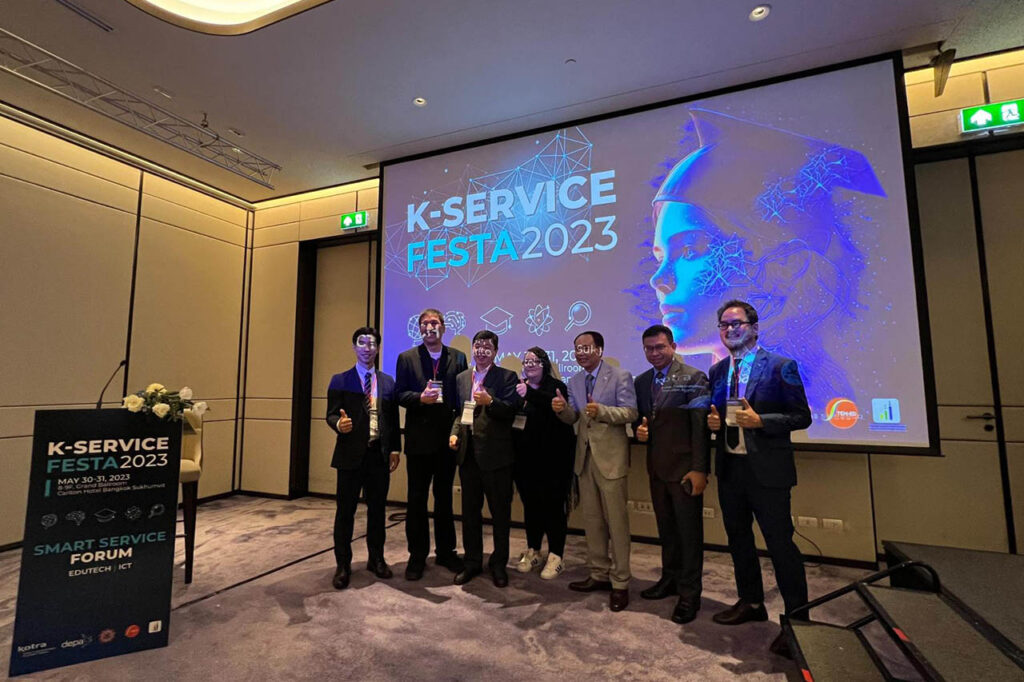
Why would you recommend AllviA to your partners?
In my opinion, the most important thing for customers is quality education. Everyone deserves high-quality education that is reasonably affordable and accessible. The United Nations recognizes that education is the pathway to a better future and that quality education, not merely education, should be a reality for everyone. Unfortunately, lack of infrastructure and lack of teacher training in some countries is a reality we can’t ignore. Because of this, many teachers do not have access to professional development or teaching training seminars that would help them to customize their classes with high-quality teaching resources.
One of the main reasons I would recommend AllVia is that VISANG EDUCATION provides quality digital educational programs for English and mathematics with great resources and a system that enables teachers and students to improve and achieve better results. Using technology in the classroom is not easy, and having worked in the classroom for several years, I can say with confidence that many teachers do not understand why they are using technology and what impact or results it will have on students.
Secondly, At VISANG EDUCATION, our focus is not on having fancy technology. Rather, we are focused on both the teacher and student experiences, and providing the resources and training needed to teach. We aim to help teachers improve their instruction and continuously strive to increase teacher and student interaction, and student engagement. We also let parents get involved and help them track their child’s progress by giving them access to the recorded data from our LMS. Overall, I recommend AllviA because it is a quality educational platform with fantastic tools and resources for teachers, students, and parents.
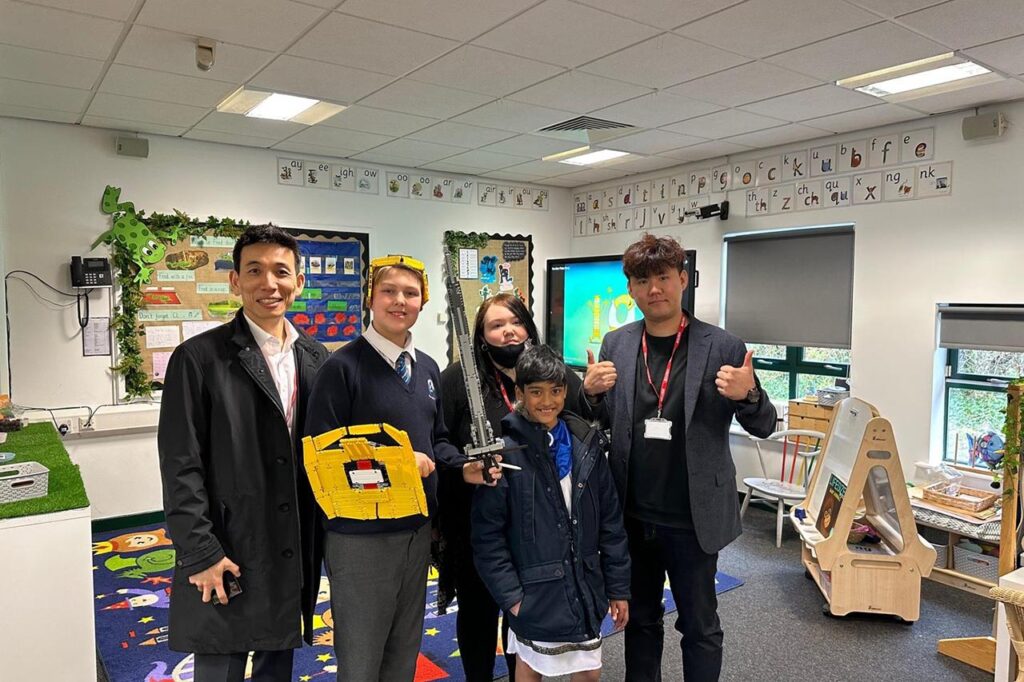
Could you tell us about the market response to AllviA?
We have been doing an ongoing special pilot program using our “Challenge” and now “EliF,” English language learning programs in Chonburi province, Thailand. “Challenge” and “EliF” are digital English education programs developed by VISANG EDUCATION. The Challenge program pedagogy is based on an interactive learning approach using AR and MR technology, providing a more active and participatory learning environment. The results of the first phase of this pilot program were outstanding, with student scores in reading, writing, listening, speaking, and phonics improving, as well as attitudes toward learning English. We are currently working on phase 2 of the pilot, and have added our EliF program. Through the pilot, we can provide both students and teachers access to educational technology that allows teaching with interactive whiteboards, MR, and AR technology, and enables students to have fun and participate in class through singing, dancing, and physical activity while learning English.
What is the most important EdTech trend right now?
Post-COVID, the world has changed a lot. I have often wondered if we will ever go back to what we once were and if we will go back to face-to-face classes. Over the last few years, it has become increasingly apparent to me that online classes are here to stay. Young kids today want online instruction more than face-to-face as they have grown up with iPads and smartphones. They know how to use these devices better than adults do! I think teachers and schools need to catch up by offering blended learning environments, and more online options. Of course, even though not all classes will be 100% online I see a continued trend towards a hybrid or blended learning model. I also think that technology will continue to play a big role in motivating students to stay interested in learning. Using AllVia, we can create richer and more active lessons than ever before.
What are the main challenges of an EdTech provider?
One of the major problems EdTech providers face is a lack of infrastructure. In many countries around the world, there is a lack of infrastructure in terms of Internet connectivity and access to devices in schools. In South Korea, however, students can have their own devices, with at least one tablet or device each to use in the classroom. In Southeast Asia, on the other hand, this is not always the case. Even when students in Southeast Asia do have devices, many lack the technical specifications required to run high-quality programs. For example, to use the programs from AllVia, student devices should also have at least three or four gigabytes of RAM for the program to run efficiently.
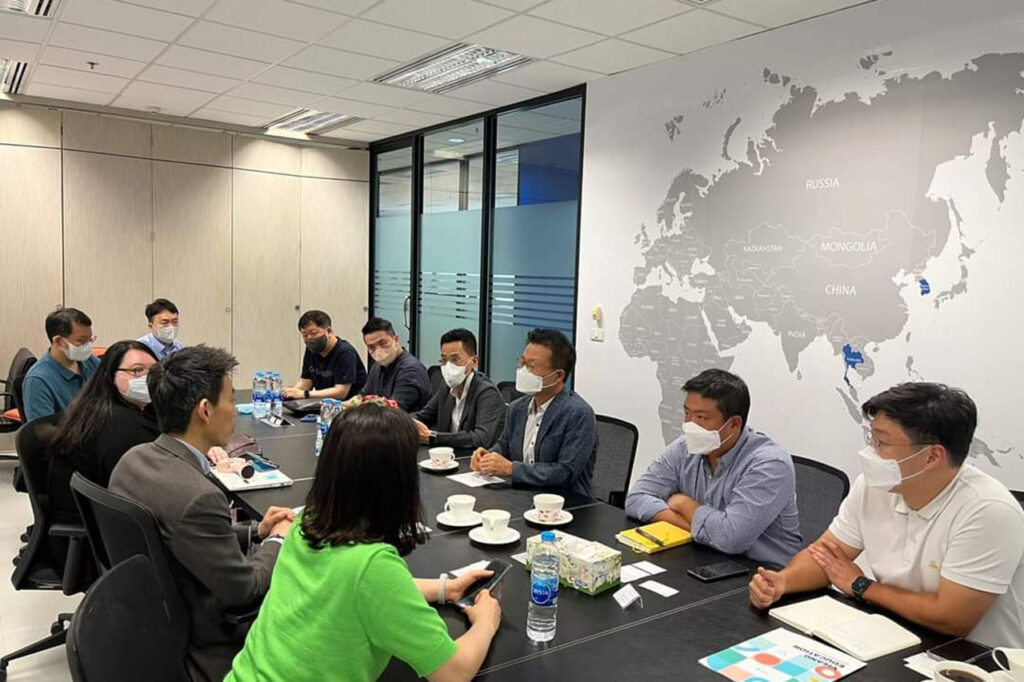
The second major problem faced by EdTech providers is a lack of teacher training and technological expertise on the part of teachers. Due to time and planning constraints, teachers sometimes have difficulty learning and implementing new programs. It’s important to provide teachers with simple, easy-to-use programming and resources that will improve their classes. With the AllVia programs, teachers can save time on planning as our programs provide various levels of support for both teachers and students.
I was an English teacher and TESOL instructor for several years, so I know how much support even native teachers need to run effective classes. The AllviA programs are special because they are digitized and provide a simple and easy-to-follow framework for teachers to learn how to structure and run their classes. Although the English industry is quite big all around the world, hiring and retaining native speakers can be quite difficult, not to mention costly. Using the AllviA programs, non-native teachers of English will be able to effectively teach classes, regardless of their English level. The feedback I most often receive from teachers in Thailand, for example, is that they are learning English alongside their students, and they can see their own English skills improving, not to mention their teaching skills.
How can AllviA be recognised by the world for quality education?
In order to achieve more of a global footprint, I think we need to engage more schools around the world in pilot programs. We need to allow teachers and students to experience this new teaching paradigm, and we need to engage in more events and programming to make AllVia more well-known. The most important thing, however, is to observe, study, and gather the results of these pilot programs. In Thailand, we are currently working on a research study in collaboration with local stakeholders to measure outcomes. A few weeks ago, I went to Thailand to monitor and observe classes to see how things were going. I was very pleasantly surprised to see the children’s attitudes had improved; they were all happy and smiling and eager to study English. Based on this, in combination with test scores and other results, we are currently about to start similar projects in other locations around the world including other countries such as Paraguay, and Egypt.
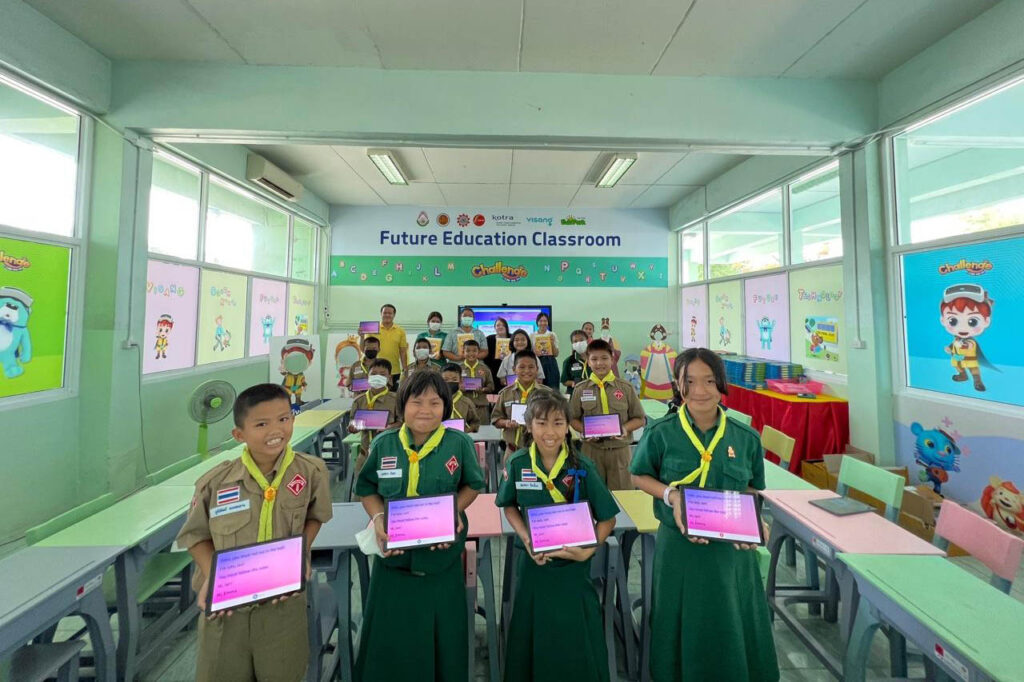
How to become an AllviA partner for quality education?
For anyone interested in becoming our partner, please send us an email, and our team will make sure you have all the tools to implement AllviA in your school right away.
Last question, what are your goals for the future?
Personally, I want to improve educational outcomes, especially in underserved and underprivileged areas, in Africa, South America, and Southeast Asia. I value social responsibility and want to ensure that all students have access to a good, quality education like VISANG EDUCATION provides. It is for this reason that I joined VISANG EDUCATION, and I feel privileged to work here.

